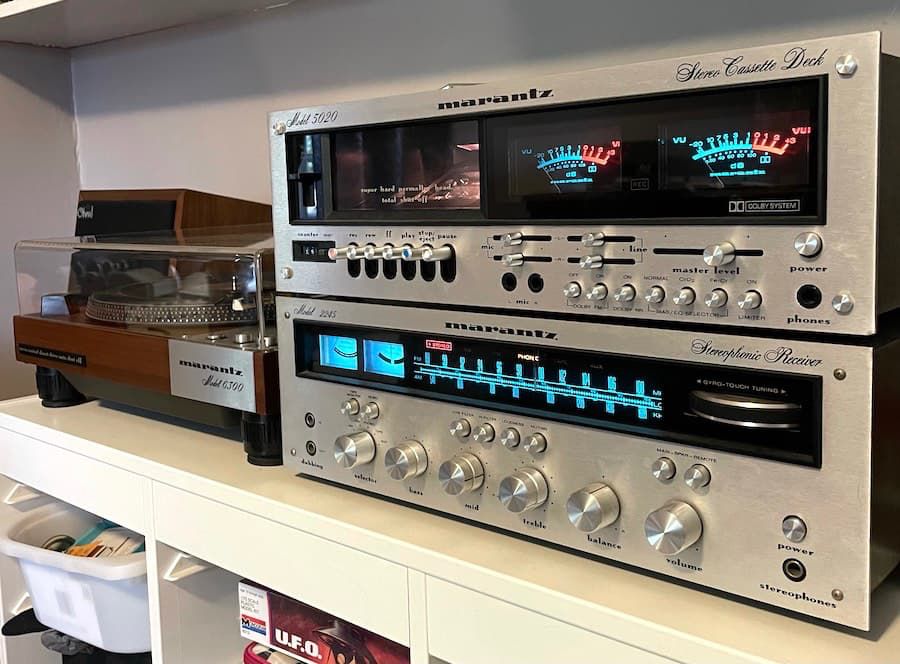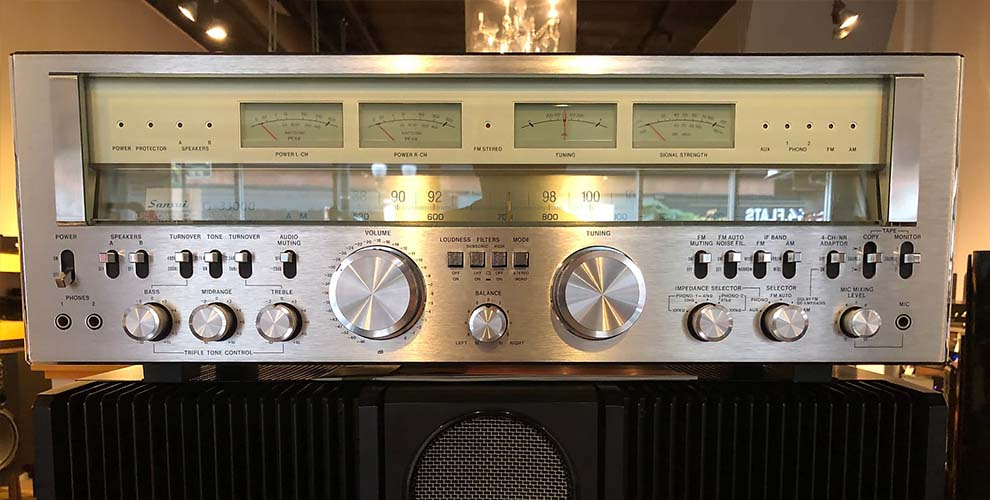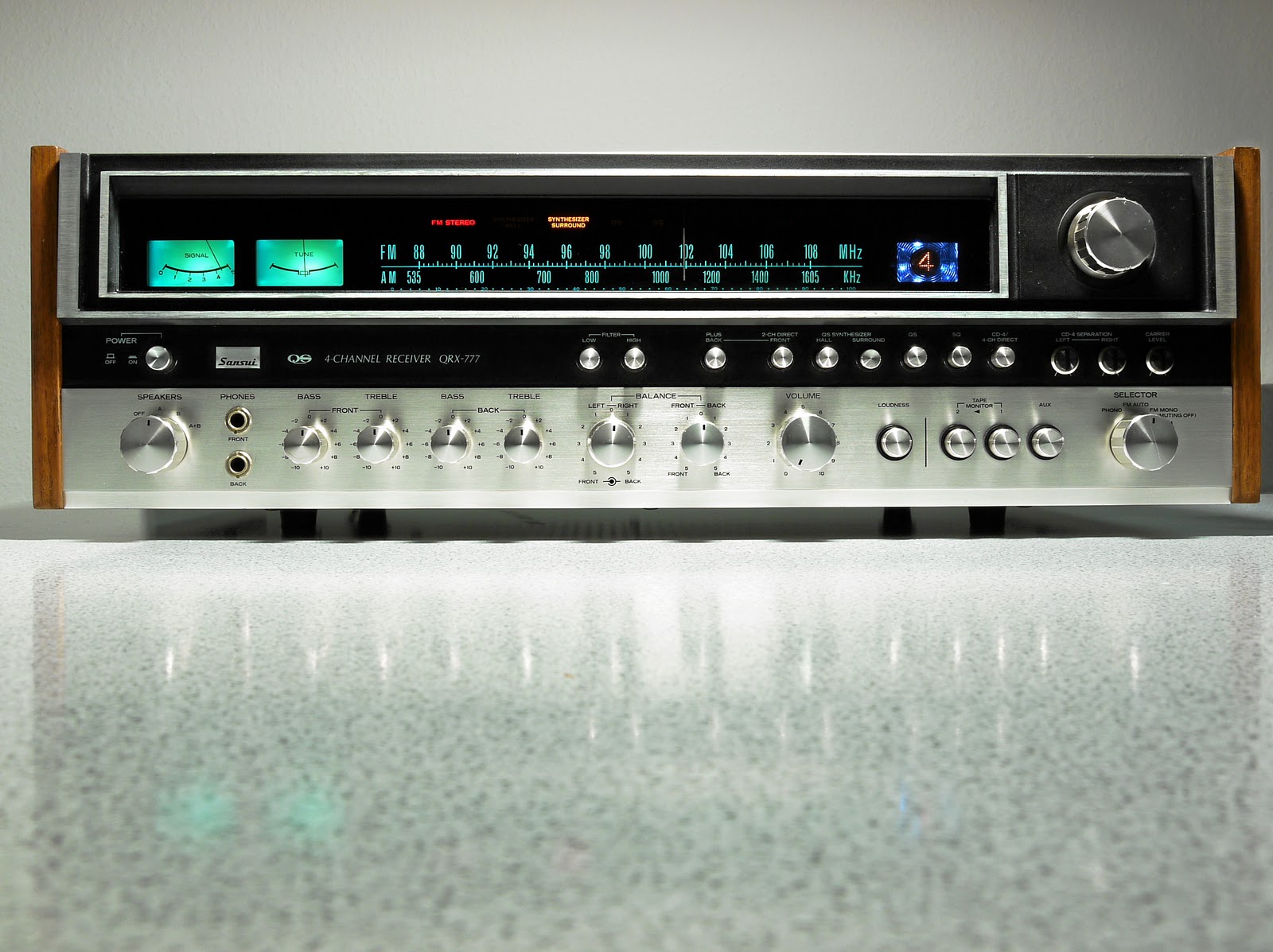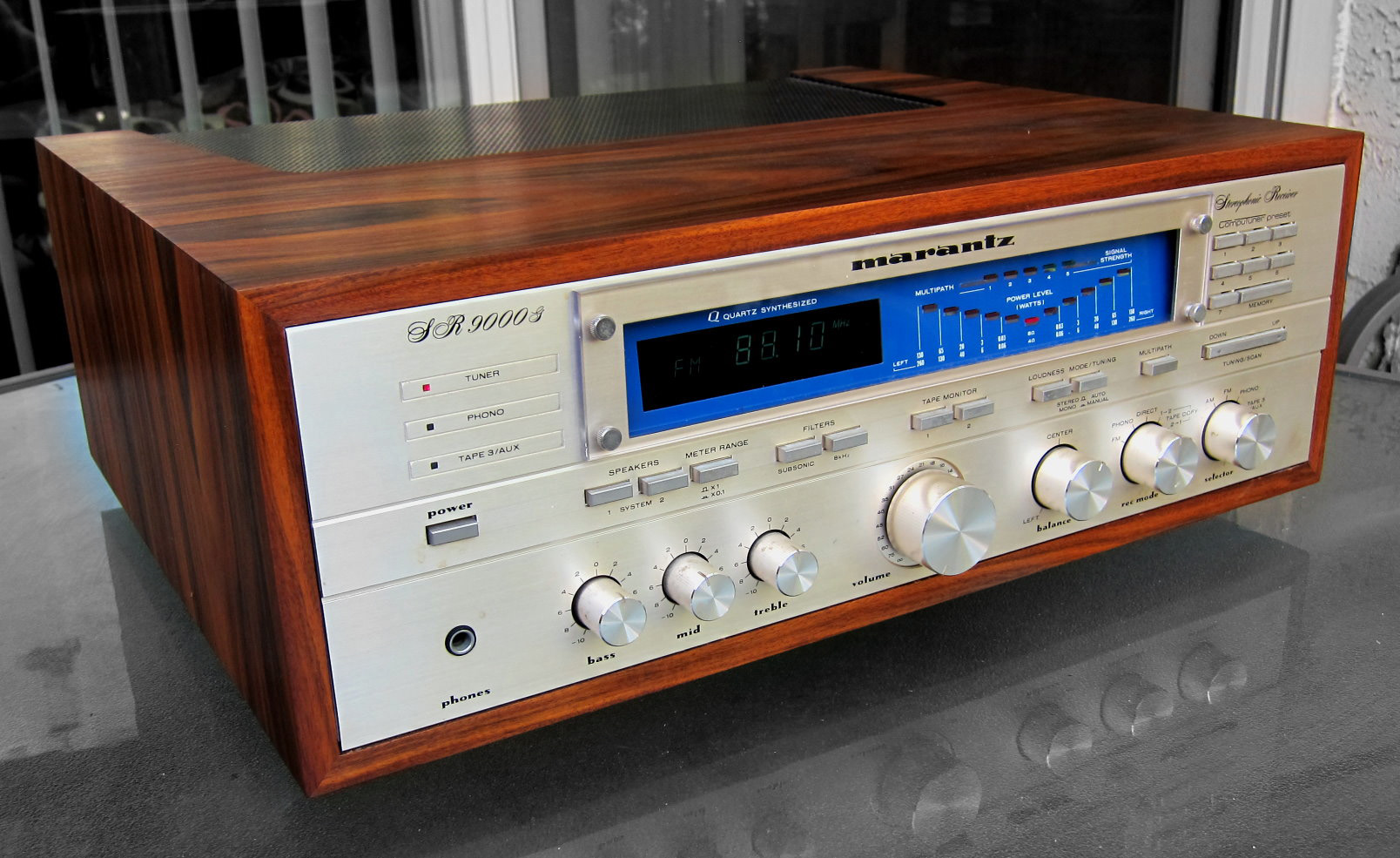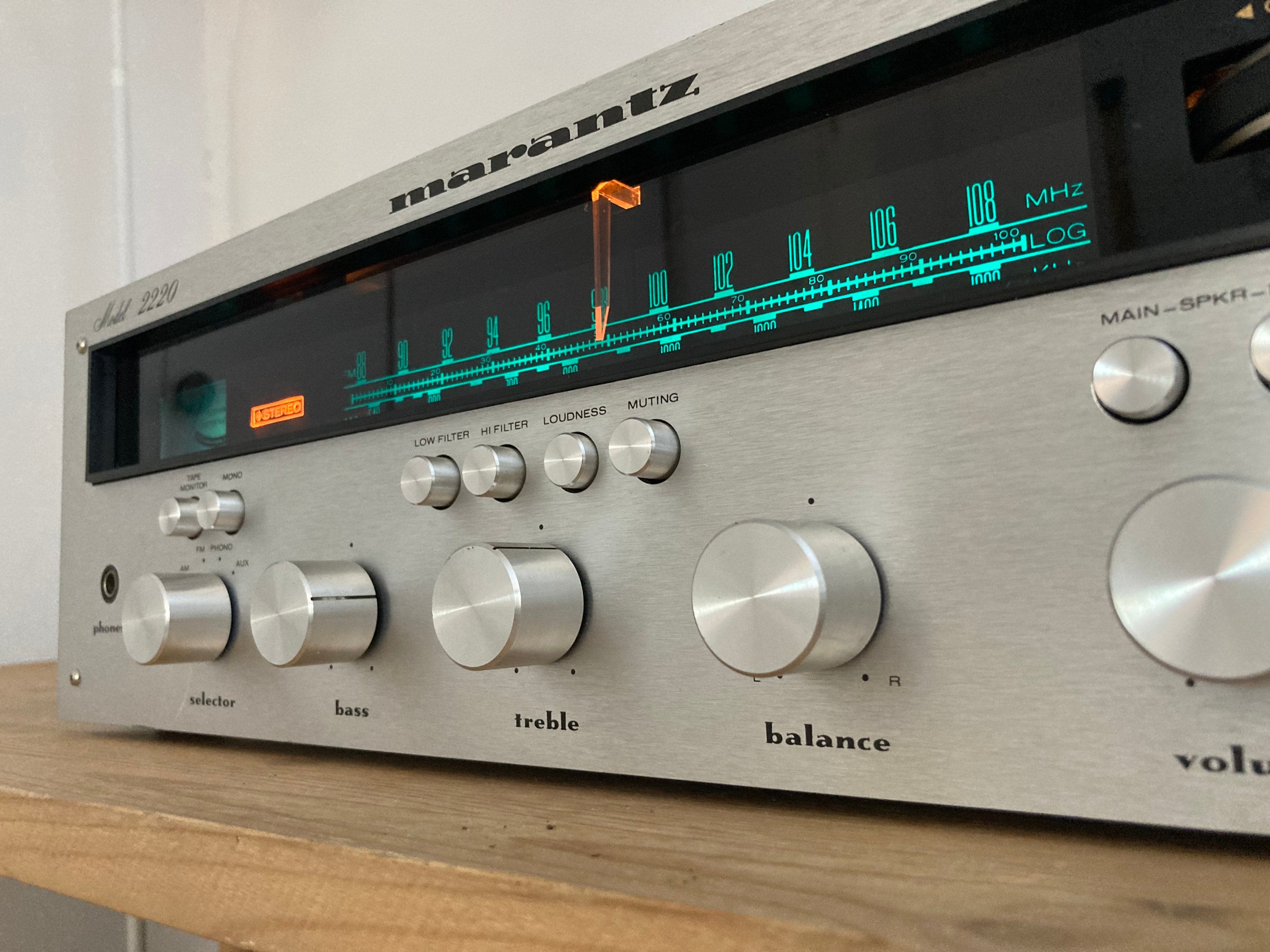Best Looking Vintage Receiver

Forget sterile soundbars and soulless digital interfaces. You're here because you crave warmth, character, and a visual centerpiece that screams "good taste." We're talking vintage receivers: the heart of a bygone era of audio engineering, now ready to pump life back into your listening room.
This guide is for the first-time buyer, someone who appreciates the aesthetics of classic audio gear but needs a little help navigating the world of transistors, capacitors, and potentiometers. We'll demystify the jargon, highlight the best looking models, and arm you with the knowledge to make a smart, satisfying purchase.
Vintage receivers matter because they represent a commitment to quality, both in construction and sound. Unlike today's often disposable electronics, these were built to last, with an emphasis on rich, full-bodied audio reproduction.
Top 5 Best Looking Vintage Receivers: A Head-to-Head Comparison
Here's a quick look at some of the most visually appealing and sonically capable vintage receivers. Remember that prices fluctuate based on condition and rarity.
| Model | Estimated Price (USD) | Power Output (Watts/Channel) | Key Feature | Warranty (Typical Used Sale) |
|---|---|---|---|---|
| Marantz 2270 | $800 - $1500 | 70 | Iconic blue dial, warm sound | None (unless refurbished by a dealer) |
| Sansui 9090 | $1200 - $2500 | 110 | Massive power, detailed sound | None (unless refurbished by a dealer) |
| Pioneer SX-780 | $300 - $600 | 45 | Silver face, reliable performance | None (unless refurbished by a dealer) |
| Kenwood KR-4070 | $200 - $400 | 40 | Clean design, good value | None (unless refurbished by a dealer) |
| Yamaha CR-1020 | $500 - $900 | 70 | Natural sound, sleek aesthetic | None (unless refurbished by a dealer) |
Detailed Reviews of Top Contenders
Marantz 2270: The Blue-Eyed Beauty
The Marantz 2270 is arguably the most recognizable vintage receiver, thanks to its signature blue dial and warm, inviting sound. It's a classic for a reason, offering a smooth, musical listening experience that's perfect for vinyl lovers.
Its power output is adequate for most home setups, and the build quality is exceptional. Be prepared to pay a premium for this iconic piece.
Sansui 9090: The Powerhouse
If you need serious power and a commanding presence, the Sansui 9090 is your receiver. This behemoth delivers a staggering 110 watts per channel, capable of driving even the most demanding speakers.
The Sansui also offers a highly detailed and transparent sound, making it a favorite among audiophiles. Its larger size and higher price tag reflect its superior performance.
Pioneer SX-780: The Reliable Workhorse
The Pioneer SX-780 offers a great balance of performance, aesthetics, and affordability. Its silver face and clean lines make it a visually appealing addition to any room.
It’s known for its reliability and relatively easy maintenance, making it a good choice for first-time vintage buyers. The SX-780 provides a warm and enjoyable listening experience.
Kenwood KR-4070: The Budget-Friendly Option
If you're looking for vintage style on a budget, the Kenwood KR-4070 is a solid choice. It offers a clean and simple design with surprisingly good sound quality for its price.
While not as powerful as some of the other models on this list, it's more than capable of driving smaller speakers in a modest listening space. The KR-4070 is a great entry point into the world of vintage audio.
Yamaha CR-1020: The Sleek Performer
The Yamaha CR-1020 stands out with its sleek, modern aesthetic and natural, uncolored sound. It's a departure from the warmer tones of Marantz and Sansui, offering a more neutral listening experience.
Its build quality is excellent, and its understated elegance makes it a perfect fit for contemporary interiors. The CR-1020 offers a sophisticated blend of form and function.
Used vs. New: Weighing the Options
Buying a vintage receiver means embracing the used market. There are no "new" vintage receivers, so you'll be dealing with equipment that's been around for decades.
Used Pros: Unique aesthetic, potentially better sound quality for the price, opportunity to own a piece of audio history. Used Cons: Potential for hidden problems, need for repairs, lack of warranty.
Reliability Ratings by Brand
While individual unit condition matters most, certain brands have a reputation for greater reliability. Pioneer and Yamaha are generally considered more reliable than Sansui and Marantz, though this is a broad generalization.
Keep in mind that older electronics are more prone to failure regardless of brand. Plan for potential maintenance and repair costs.
Checklist: 5 Must-Check Features Before Buying
Before you commit to a purchase, thoroughly inspect the receiver.
- Cosmetic Condition: Look for scratches, dents, and other signs of wear. Excessive damage can indicate neglect.
- Functionality of All Controls: Test every knob, button, and switch to ensure they function smoothly and without crackling.
- Sound Output: Listen for any distortion, hum, or other unusual noises. Test both channels to ensure they are working properly.
- Input/Output Jacks: Check for corrosion or damage. Make sure all inputs and outputs are working.
- Originality: Inquire about any modifications or repairs. Original, unmodified units tend to hold their value better.
Key Takeaways
Choosing the best-looking vintage receiver is a balance of aesthetics, sound quality, reliability, and budget. Each model offers a unique blend of these factors. Consider your personal preferences and listening habits when making your decision.
Remember to thoroughly inspect any potential purchase and factor in potential repair costs. Doing your homework ensures a satisfying and long-lasting listening experience.
Ready to Dive In?
Now that you're armed with the knowledge, it's time to start your search. Browse online marketplaces, visit local audio shops, and connect with other vintage audio enthusiasts. The perfect receiver is out there, waiting to be rediscovered.







